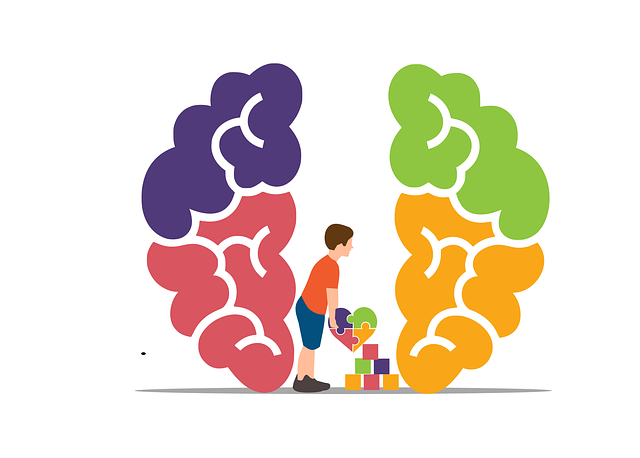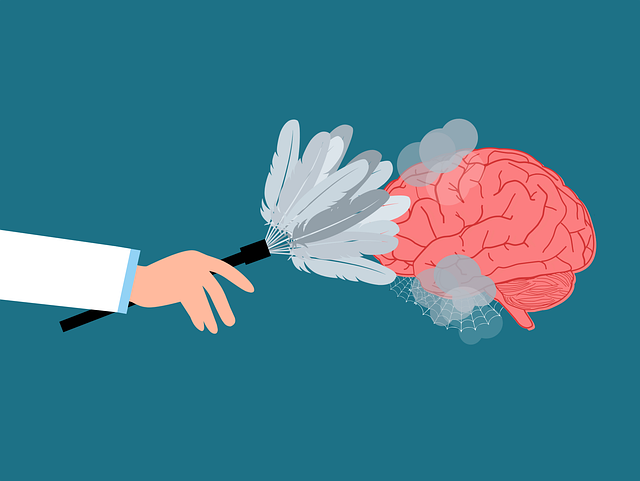In a trend driven by today's digital era, Englewood Family Counseling Therapy leads in developing user-friendly mental wellness apps as accessible solutions for emotional well-being. Their app prioritizes privacy and security through robust encryption and secure data storage while offering engaging content like Mindfulness Meditation and personalized progress tracking. By integrating user feedback and adaptive algorithms, the app evolves to meet individual needs, fostering trust and reducing mental health stigma within a supportive community. Effective marketing strategies, including storytelling and social media engagement, aim to attract and retain users, ensuring Englewood Family Counseling Therapy's holistic approach to mental wellness reaches a wide audience.
In today’s fast-paced world, mental wellness apps have emerged as powerful tools for supporting individuals’ emotional well-being. With an increasing demand for accessible and discrete help, development in this space is more crucial than ever. This article explores the key aspects of creating effective mental wellness apps, from understanding user needs to ensuring privacy and implementing sustainable marketing strategies. By focusing on features like personalized therapy sessions, mindfulness exercises, and secure data protection, developers can foster engaging experiences akin to services provided by Englewood Family Counseling Therapy.
- Understanding the Need for Mental Wellness Apps
- Key Features and Components of Effective App Development
- Engaging Users and Ensuring Privacy and Security
- Marketing and Sustainability Strategies for Mental Health Apps
Understanding the Need for Mental Wellness Apps

In today’s fast-paced world, mental wellness is a growing concern, leading to a surge in demand for accessible and convenient solutions. This is where mental wellness apps step in as powerful tools to support individuals’ mental health journeys. With the rise of digital technology, many people are turning to smartphones and tablets for guidance and assistance when it comes to their emotional well-being.
Englewood Family Counseling Therapy, a leading provider of mental health services, recognizes this shift. They understand that developing user-friendly apps can bridge the gap between traditional therapy and modern lifestyles, making professional support more attainable. This approach is especially relevant in addressing issues like burnout prevention, which has become a significant focus in both Mental Health Policy Analysis and Advocacy and Public Awareness Campaigns Development.
Key Features and Components of Effective App Development

When developing a mental wellness app like Englewood Family Counseling Therapy’s digital offerings, key features and components work together to create a powerful tool for improving user mental health. Firstly, incorporate intuitive interfaces designed with user experience in mind, ensuring accessibility and ease of navigation. Users should find it simple to access various tools and resources, such as Mindfulness Meditation sessions tailored to their needs. Incorporate personalized profiles where users can track progress over time, setting achievable goals for Self-Esteem Improvement.
Secondly, robust data security measures are paramount to foster trust among users, especially when dealing with sensitive mental health information. Implement features that enable professionals to conduct Risk Assessments for Mental Health Professionals, ensuring a safe and supportive environment. Regular updates incorporating user feedback and the latest research in mental wellness further enhance the app’s value. Engaging content like interactive exercises, educational articles, and expert-led videos keep users engaged and invested in their journey towards better mental health.
Engaging Users and Ensuring Privacy and Security

Engaging users and ensuring privacy and security are paramount in mental wellness app development. Apps designed for Emotional Well-being Promotion Techniques must create a welcoming, intuitive interface that encourages frequent use. This can be achieved through gamification elements, personalized content, and interactive features that foster Inner Strength Development. Incorporating user feedback loops and adaptive algorithms allows the app to evolve with users’ needs, keeping them engaged over time.
Privacy and security measures are critical for building trust, especially when dealing with sensitive mental health data. Implementing robust encryption protocols, secure storage solutions, and transparent data handling practices ensures that users’ information remains confidential. Encouraging open dialogue about Mental Illness Stigma Reduction Efforts within the app community can further enhance user experiences by fostering supportive environments where individuals feel safe to share their journeys. At Englewood Family Counseling Therapy, we prioritize these aspects to create a holistic digital experience for our clients.
Marketing and Sustainability Strategies for Mental Health Apps

Marketing a mental wellness app effectively is key to its success and sustainability, especially within a competitive market. Engaging strategies can help attract users and ensure long-term retention. One powerful approach is storytelling; sharing real-life experiences of individuals who have benefited from the app can build trust and create a sense of community. Social media platforms, influencer partnerships, and content creation around mental health awareness campaigns can significantly boost visibility.
Sustainability in this sector goes beyond user acquisition. Apps should offer a diverse range of features to cater to different needs and preferences, encouraging users to return regularly. Incorporating feedback loops allows developers to continuously improve the app, ensuring it remains relevant. Additionally, promoting user engagement through rewards or challenges can foster a sense of commitment. For instance, an app could provide personalized resilience-building exercises tailored to individual progress, rewarding users for consistent use. This holistic marketing and sustainability strategy mirrors the comprehensive approach of Englewood Family Counseling Therapy, integrating various techniques to support holistic mental health.
Mental wellness apps have emerged as powerful tools in addressing the growing need for accessible and personalized mental health support. By incorporating key features like mood tracking, mindfulness exercises, and therapeutic chat rooms, these applications can significantly contribute to improved mental well-being. As highlighted by Englewood Family Counseling Therapy, effective app development should prioritize user engagement through interactive content while maintaining robust privacy and security measures. Additionally, successful marketing strategies and a focus on sustainability will ensure these apps remain valuable resources for individuals seeking support. By combining these elements, mental wellness apps have the potential to revolutionize access to care, making professional assistance more accessible and engaging than ever before.














